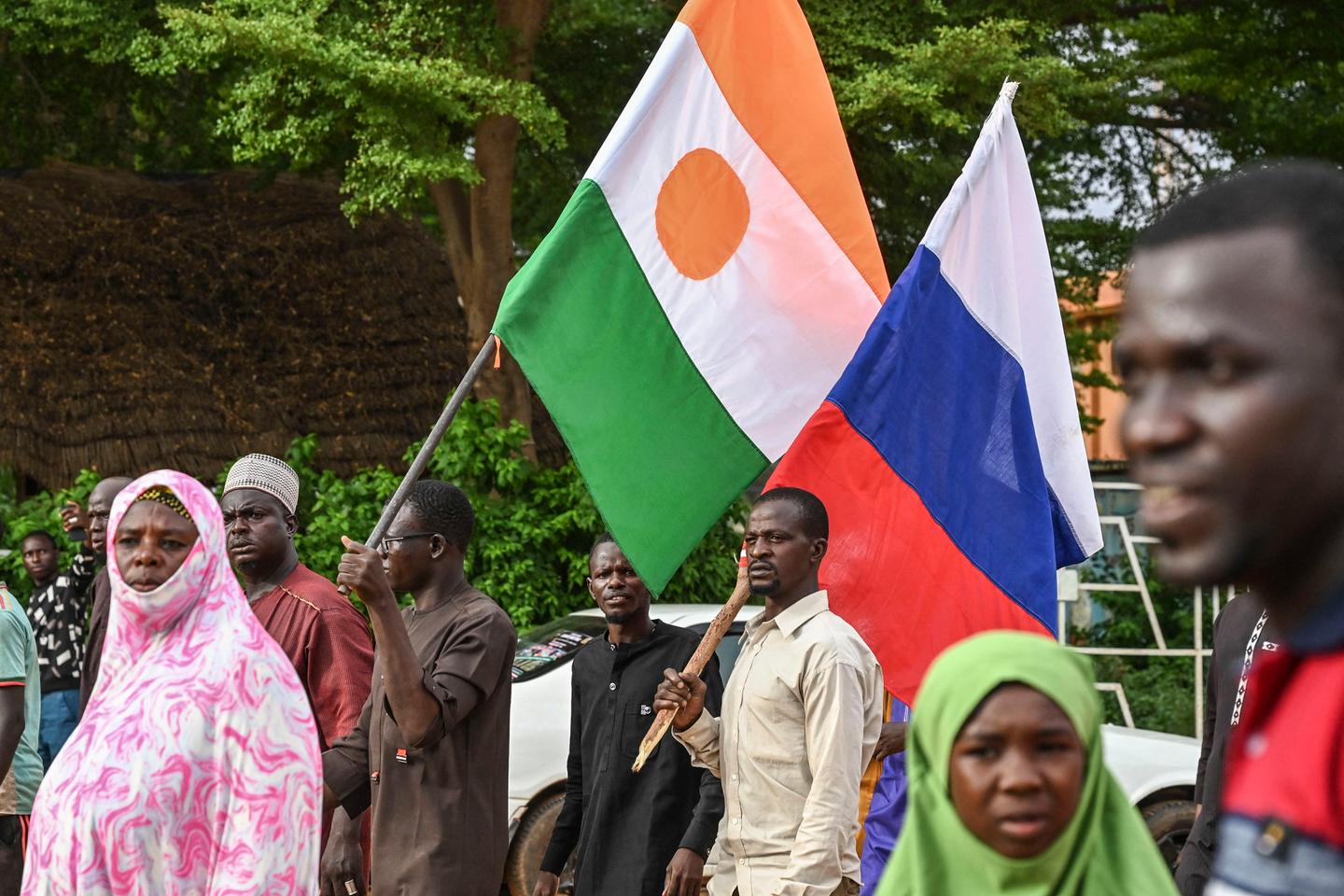


It's one of the most spectacular geostrategic shifts of the past decade, yet it's the one to which the West, preoccupied with Europe and Asia, has paid the least attention. In the space of 10 years, Russia has succeeded in establishing itself militarily and diplomatically on the African continent, to the point of driving French and American forces out of part of the Sahel.
The three-part investigation, published by Le Monde starting on August 21, shows how this process, launched by Moscow in the wake of the annexation of Crimea and the start of Russian intervention in eastern Ukraine in 2014, was thought out and organized by the Kremlin, which was able to capitalize on the Soviet legacy of the Cold War, French blindness and the American retreat following the fiasco of the Iraq war.
Russian intervention in Ukraine was followed in 2015 by the dispatch of Russian troops and air force to Syria to save the Assad regime, which the United States had given up fighting. Moscow began implementing its African strategy in Sudan in 2017, followed by the Central African Republic. From 2020, the effort continued in the Sahel countries (Mali, Burkina Faso, Niger), shaken by a series of coups, while Russia consolidated its hold on eastern Libya and entered Chad. This strategy relies on two essential tools: influence campaigns that stir up post-colonial resentment toward the West among African elites and segments of the population, and, in the security sphere, the mercenaries of the Wagner militia.
Playing on Soviet-era solidarity
In the 24 years he's been in power, Vladimir Putin has only visited the African continent three times – and always to South Africa. But he has orchestrated Russia's return there, after a long absence due to the collapse of the Soviet bloc. Building on the ties forged with future African elites in the days of the USSR, which educated tens of thousands of sub-Saharan students, and playing on the former Soviet power's solidarity with liberation movements, the Russian president has no need to travel; new African leaders regularly make the trip to Moscow or Sochi.
Following the split between Vladimir Putin and Yevgeny Prigozhin, the head of Wagner who died in his plane's "accident" on August 23, 2023, two months after attempting a mutiny against the Kremlin, Moscow reorganized its military arm in Africa. It replaced Wagner with a new organization, Africa Corps, and assigned a deputy defense minister to exclusively manage security policy in Africa. Russia no longer subcontracts; it now acts openly. At the same time, the French troops deployed in the Sahel since 2013, at the request of the Malian government at the time, were asked to leave by the new ruling juntas; the American force installed in Niger, also driven out, retreated pitifully to Côte d'Ivoire.
Another lesson of Western blindness to Putin's Russian ambitions is that France has seriously underestimated the dynamics at work. African regimes under Moscow's influence believe they have regained their sovereignty. Russia, on the other hand, is maintaining its position as Africa's leading arms supplier, reaping the benefits of mining contracts and establishing another front against the West.
